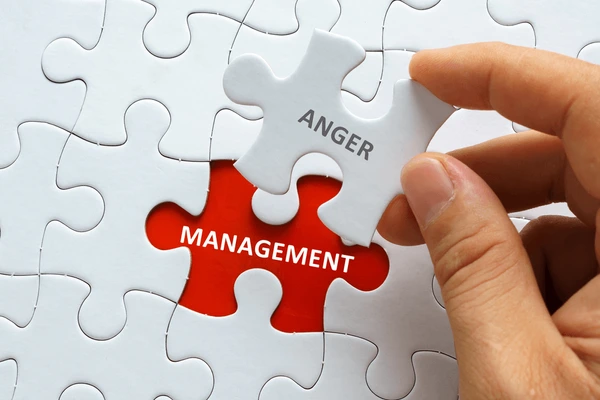-
129, Block-A Bangur Avenue, Mousumi Appartment, Kolkata 700055
129, Block-A Bangur Avenue, Mousumi Appartment, Kolkata 700055

Learn how the effective presence of good mental health support at work is extremely important for one to be resilient in recovering from internal or outer wreckage successfully and see how the Best Psychological Counselor in Kolkata can help a person out build it.

Today, everyone faces so much in their workplace and society that no one can keep personal life separate. Mental problems can be so overwhelming that looking after the psycho-emotional well-being seems to take the back seat. However, taking care of or finding a good mental supportive system may just be the difference in regards to stress, psychological disorders, and even those issues that come along during the ordinary course of life.
Support systems in the mind are vital for various reasons: they give emotional stability that can greatly help in really practical ways. In this post, we’ll delve deeply into why one needs to have a support system identifiable and then discuss the ways of creating and nurturing it for better mental well-being.
Human beings are intrinsically social beings, and meaningful connections suit the bill to great lengths for mental health. A support system for mental health can be said to be a network of people that give assistance emotionally, psychologically, and at times practically. Here are some reasons why connection matters:
Sometimes, it is enough just to know that someone hears you: one of the greatest reliefs when feeling emotionally overstrained. A very strong support system makes you feel free to share your sadness, anxiety, or frustration with the comfort of not being alone in that experience. Talking about your mental health might be watered down to some extent, reducing those effects of isolation and alienation.
The more you feel connected to others, the better. This might be through your relationships with your family and friends or perhaps professional networks that understand your experiences. These connections develop emotional resilience greatly, and people who belong more strongly have a lower risk of depression and anxiety.
A good support system pushes you to take the steps necessary for recovery or improvement. Whenever you feel discouraged, encouragement is always offered—from your family, friends, or even a counselor. Having people hold you accountable, from following a therapy schedule to practicing self-care activities, boosts your mental strength.
Most people decline in their mental well-being because of the stress under which they operate most of the time. The network comes to help you cope with stressful situations in a healthier manner. Advice, comfort, and practical matters such as babysitting or fixing some household chores cut down on the level of stress.

While your closest friends and family can provide emotional support, you should not discount professional help in the overall management of mental health. Professional counseling is one of the areas of professional expertise that you can get that your personal support network will not be able to. Here is why a trained professional must form a part of your support system:
A professional therapist or counselor can take you through issues of mental health. They are trained with tools and strategies to improve your situation, be it CBT in case of anxiety or other forms of depression.
As much as they care for you, family and friends are never objective enough in their advice-giving. A psychological counselor gives you an outside view that might really clear things out for you and even offer advice appropriate for real, scientifically-grounded practice in therapy settings.
Perhaps, confidentiality is one of the biggest advantages of professional counseling. You can share things that you would not really want to share with your relatives. This safety promotes open honesty; you can grapple with deeper issues that may not be accessible in any casual conversation.
Mostly, patients with mental problems require long-term support. Whether one has developed anxiety, depression, or recently experienced some kind of life trauma, it is essential to construct a long-term relationship with a counselor or therapist. Such a specialist in mental health can assist one to develop strategies that not only help cope but end up having long-term mental resilience.
A supportive mental health network is built on effort, intent, and patience. Here’s a place for you to start:
Before you reach out, you first need to know what kind of need you have to connect with someone about your mental health. Reflect on what kind of help you need: some emotional understanding, practical help, or the presence of a more professional therapist? Knowing your needs will make it easier to shape a more personalized support network.
It should comprise of your close relatives or friends. Let them know what you are passing through and make them understand how they can support you. Such relationships may prove to be so helpful, but communicating your actual psychological needs ensures that they understand the best way to support you.
Excellent opportunities for building connections with others who may be experiencing the same situations exist in both online and in-person support groups. These groups make you feel part of something and that you are not alone. You also get incredible insight, comfort, and validation through peer support.
You can get expert support in handling issues related to your mental health from a professional. A Best Psychological Counselor in Kolkata shall help you navigate through the strategies for skill-building in the management of stress and anxiety and other related issues.
Self-care is a need both of the body and the mind. Recovery time, mindfulness, and activity level all play together in perfect harmony with healthy eating to build emotional strength. Your support system will work to ensure these habits set and keep you on track.
Sometimes, we fear asking for help, thinking that people will be annoyed or irritated and think that we are exploiting their time. The cool thing to know: accepting help from others does not make you weak; it makes you resilient. People love and care about you; they want to help. Do not be afraid of leaning on them when you need them.
It demands group therapy combined with community mental health resources to build support in the mental aspect. It provides an opportunity to mingle with others that are known to struggle with similar issues, thus fostering a sense of understanding or empathy. Group therapy, when specifically used on individuals with conditions of grief, addiction, or chronic mental issues, is quite beneficial since it teaches people to normalize their experiences and promotes group healing together.
Community mental health services can easily make free resources accessible to anyone who cannot afford private therapy services. Programs offer a bridge for those in need of professional help but lack the financial wherewithal.

Begin by stating your innermost feelings. Carefully and clearly state your feelings and reasons for needing their help. Avoid blaming because they really help you this time.
Of course, professional help remains helpful even when there is an excellent support network. Only therapists can provide special tools and unbiased perspectives that close relatives and friends are unlikely to possess.
It could be just what you need to motivate you to adopt healthier coping strategies, to really listen, and to offer comfort without judgment. If your support system is causing you more stress, discouraging your desire to seek professional help, or providing unhealthy advice, then it’s time to reevaluate the amount of support they are offering you.
You could consider seeking the help of a professional counselor or joining a local support group. Counseling is just one of your possible avenues that may lead you to an assembly of individuals concerned about your well-being.
Building a support system in mental health is not a one-time process but an ongoing one. Starting with family and friends, to support groups, professional counselors, and so on, a healthy support network will enhance your emotional well-being. A healthy mental health support system would thus be one that listens and understands but encourages, motivates, and helps stay grounded.
So, are you ready to make an advanced support system? Under proper guidance, don’t wait to find out the best psychological counselor in Kolkata. You can walk through mental health complexities with greater strength and resilience.

27.09.2025